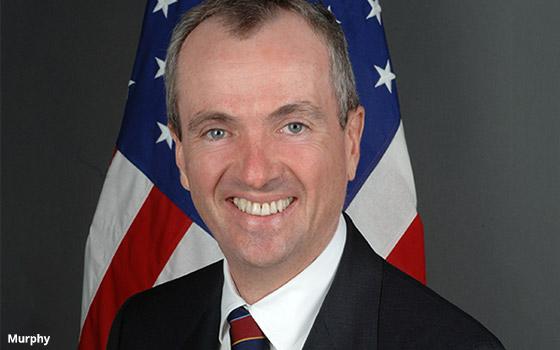
New Jersey has joined New York and Montana in requiring Internet
service providers to follow net neutrality principles in order to obtain state contracts.
"While New Jersey cannot unilaterally regulate net neutrality back into law or cement it as a state
regulation, we can exercise our power as a consumer to make our preferences known," Governor Phil Murphy stated
Monday afternoon when he signed the new executive order.
That order, which takes effect July 1, prohibits broadband providers
that contract with state agencies from blocking, throttling or prioritizing content or applications, engaging in paid prioritization, and from "unreasonably" interfering with people's ability to
access online content and services.
The new mandate is comparable to ones signed recently by New York Governor Andrew Cuomo and Montana Governor Steve Bullock, who also aim to restore the 2015
open Internet rules. Last December, the FCC voted 3-2 to repeal those rules.
The FCC made the move despite popular support for net neutrality. A survey conducted by the University of
Maryland last year, shortly before the agency's vote, showed that
83% of Americans disapproved of the planned repeal.
In the seven weeks since the repeal, lawmakers and officials from several states -- including California, Nebraska and Washington -- have
floated new laws requiring providers that serve state residents to follow net neutrality principles.
When the FCC revoked the rules last December, the agency also prohibited states from
creating or enforcing their own state-specific net neutrality regulations. But it's not yet clear whether any part of the FCC's recent decision -- including the prohibition on state rules -- will hold
up in court.
The New Jersey order includes language setting out the case for why state agencies require broadband providers to follow neutrality principles.
"New Jersey state employees
use the Internet every day to conduct the business of the State and to serve its citizens, and throttling or paid prioritization could adversely impact these employees’ ability to work for and
on behalf of New Jerseyans," the order states. "Many New Jersey government services are offered exclusively online, and throttling or paid prioritization could limit New Jerseyans’ ready access
to these important and often critical government services and inhibit citizens in need from accessing important government services."
Murphy also announced Monday that New Jersey will join
attorneys general of 21 other states and the District of Columbia in a lawsuit challenging the FCC's net neutrality repeal.